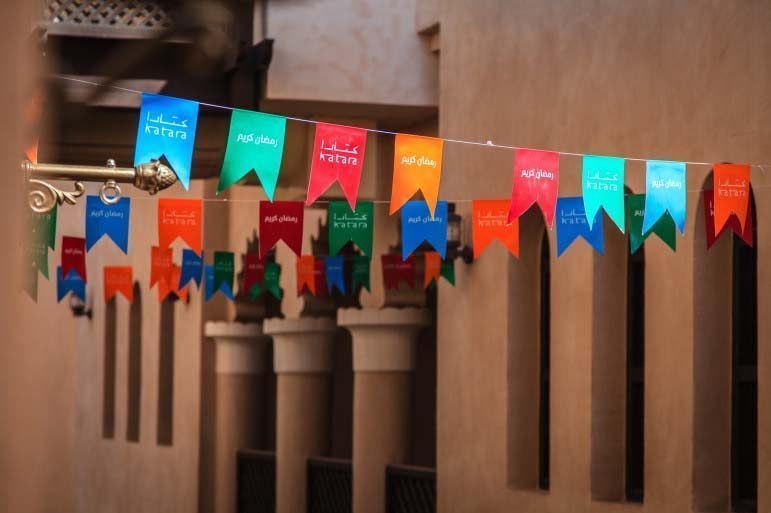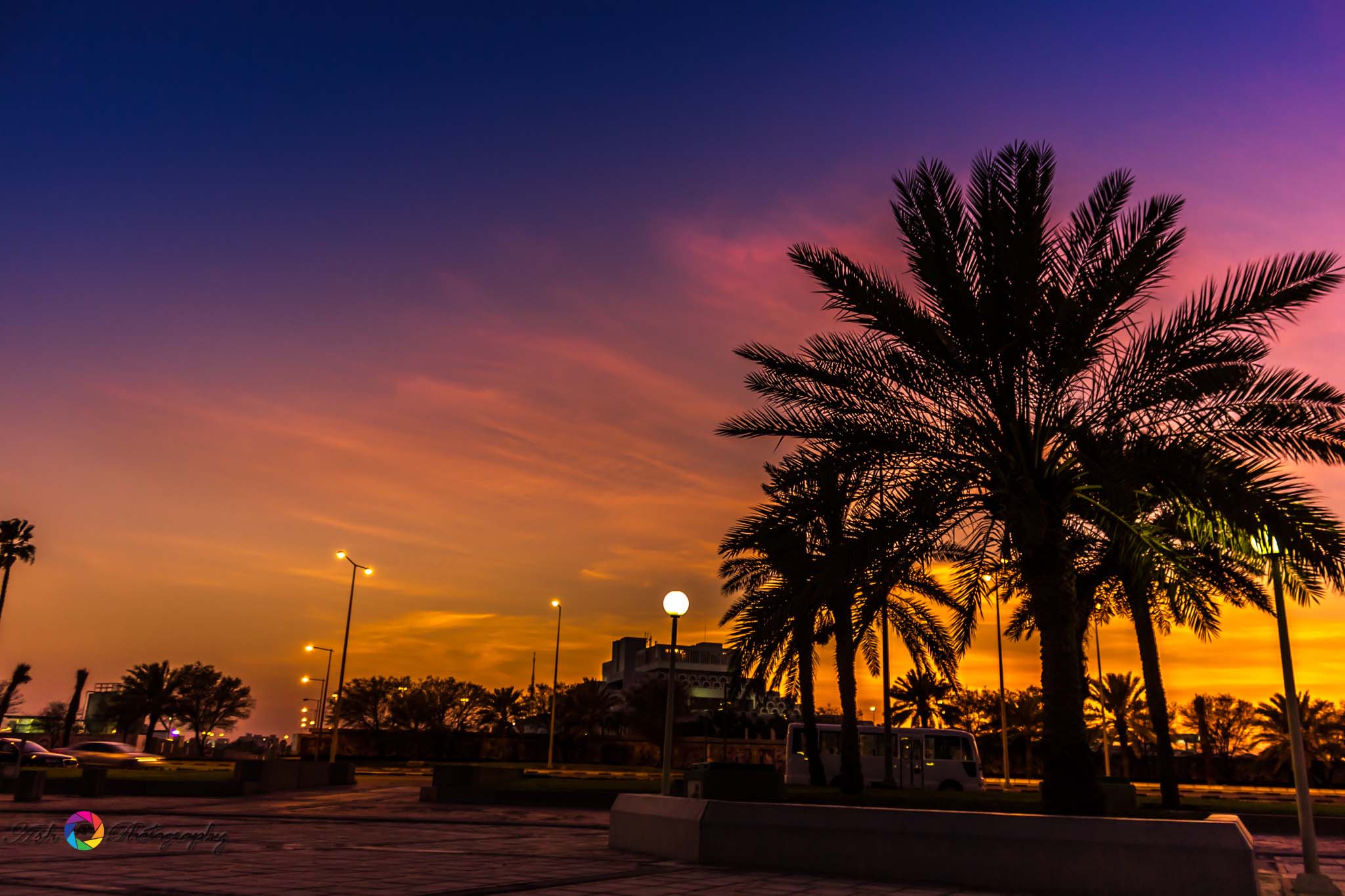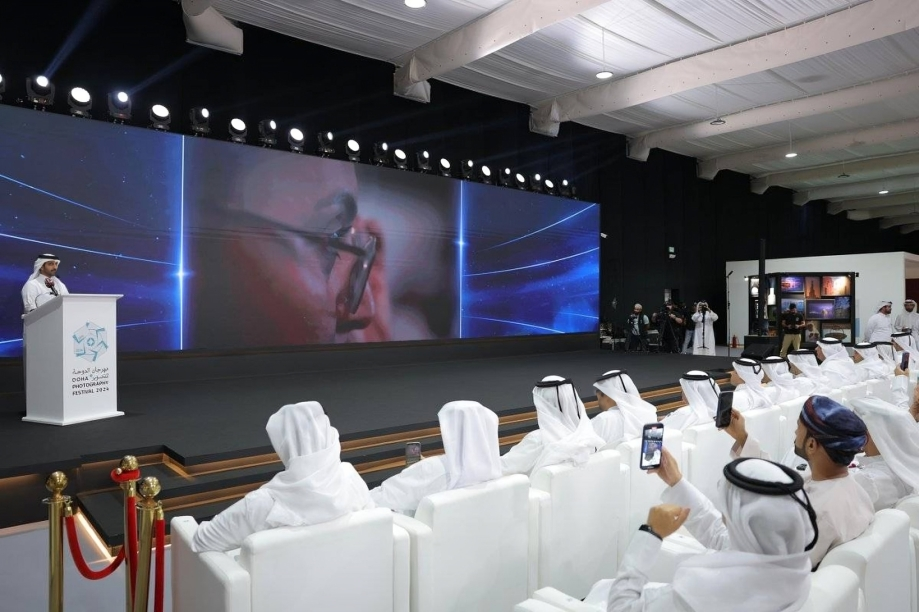
Ramadan is the holiest month in the Islamic calendar, during which observant Muslims fast from dawn to sunset. Because Qatar is a Muslim country, things depart a bit from their regular programming during this month.
Here are some key things to know about Ramadan in Qatar:

People care a lot more about the moon
This is because the Islamic calendar is a lunar one, and months begin with sightings of the crescent moon. Ramadan will last 29 or 30 days, depending on the next sighting of the new moon. It will end with a huge, days-long celebration called Eid Al Fitr (festival of fast-breaking) around July 28.

Work hours are shortened
Government offices run on a five-hour schedule, from 9am to 2pm, during Ramadan – though some agencies are open at night. Private sector employees are supposed to work a shortened six hours a day, for a total of 36 hours/week, according to the Labor Law.
However, business continues as usual in some workplaces. In this instance, employees are typically entitled to overtime compensation.

There’s no eating/drinking in public
It’s illegal in Qatar to consume food, drink beverages, or chew gum in public spaces during Ramadan. Because of this reason, the majority of restaurants here are closed during lunchtime this month, though some do offer takeaway menus.
In terms of the workplace, some are more strict than others when it comes to eating/drinking. Many Muslims don’t mind if those who aren’t fasting (non-Muslims and Muslims who are ill, or women who are pregnant or menstruating) consume food or drink beverages in front of them.
Others may take offense, and in those offices co-workers may be asked to take their meals in one designated spot (a lunchroom, for example). Some employees may decide to wait until they get home to eat, which could be easier due to the shortened work hours.

There’s a renewed focus on food
Though Ramadan is technically supposed to be about self-reflection and going without, it’s also a very social and festive month in Qatar. While many people spend more time with family at at the mosques, lots of residents also take advantage of the lavish buffets Qatar’s hotels put on during the month.
Because people are cooking and hosting parties more often, Qatar has imposed price restrictions on hundreds of food items during this month – though those restrictions appear to be unevenly enforced.
It’s important to note that hospitals in Qatar often see an uptick in patients suffering from stomach problems in Ramadan due to overeating. Doctors advise avoiding fried food and heavy meals when breaking a fast, and encourage drinking lots of water after the sun sets to avoid dehydration from the hot weather.

This Ramadan is going to be long and hot
Qatar doesn’t have it as bad as Europe and North America in terms of how long its fast goes – but 15 hours of no food or water in the summertime is going to surely take its toll on much of the population here.
Taking into account the shortened hours, the hot weather and long days, it’s likely that productivity will drop significantly over the next 30 days. So it’s better to anticipate a more sluggish pace and be pleasantly surprised if your government paperwork or other things on the to-do list are accomplished this month.

Nighttime traffic will increase
Especially because Ramadan falls in the summer this year (the lunar calendar is shorter than the 365-day solar calendar, so Ramadan’s dates change annually), fasting people are more likely than ever to hibernate indoors during the daytime.
But that means while traffic is ok during the day, it really picks up at night. Around sunset, when it’s time to break the fast, a lot of people will be rushing to dinners or home to eat, so watch out for reckless driving.
And after nighttime prayers, expect the roads to be congested with people heading to evening buffets and other activities for several hours (8pm to midnight).

Non-Muslims can partake too
During the first week of Ramadan, Hyatt Plaza holds a Fast-a-Thon, inviting non-Muslims to try fasting for a day to raise money for charity.
This year, there will be an orientation session Friday, July 4 at 4pm at the mall’s food court. Fasting will take place on Saturday and there will be a free iftar at 6pm in the food court that day, along with activities like face painting and henna for kids. For every person who signs up to fast, QR200 will be donated by Hyatt Plaza and RAF to impoverished people in African countries.
Children under 14 years old who participate will get QR100 gift certificates to Jungle Zone. To register, attend the orientation session, email [email protected] or call 44999666. More information can be found here.

Entertainment options abound
Qatar is going big on Ramadan activities this year. On July 3, Katara opens a festival that includes religious workshops, theatrical shows and a beach soccer tournament. It is also hosting a fan zone for those who want to check out the final World Cup matches over the next couple of weeks.
Meanwhile, Aspire Zone is also holding a month-long festival with religious programming, sports activities for men, women and children and swimming.

Other Ramadan traditions observed in Qatar include:
- The firing of a cannon at sunset to signify the breaking of the fast. This used to take place daily at the General Post Office parking lot in West Bay, and is usually a gathering spot for residents because it’s a fun (and loud) way to know it’s time to eat. It’s now happening at the state mosque near TV Roundabout. There’s also a cannon in the Old Airport area.
- Garangao celebrations. Both Katara and Aspire this year will hold special activities for children on the 14th of Ramadan to mark Garangao, which is kind of like Halloween without the ghouls and goblins. Across the Gulf, kids typically dress up in traditional clothes and knock on neighbors’ doors to receive nuts and candy, while singing a special Garangao song.

Qatar goes dry during Ramadan
The sole place to buy alcohol for home consumption – the Qatar Distribution Center – is closed for the month (which is why there were such long queues outside the warehouse this weekend). Hotel restaurants also stop selling booze during this time.
There are also no new releases in movie theaters until Eid time (which caused consternation a few years ago when the final Batman movie came out late in Qatar and the UAE).

There are new restrictions in the mosque
The Ministry of Awqaf and Islamic Affairs has said residents cannot collect donations at mosques without obtaining permission. Religious lessons and lectures can not be conducted without being authorized by the Ministry, and copies of the Quran, religious books and fliers can not be distributed without permission.
Those who wish to host iftars for the breaking of the fast at mosques, or who wish to partake in the 10-day Itikaf (a period of retreat in a mosque) at the end of Ramadan must also clear these actions with authorities. Finally, Awqaf is urging parents to keep young children at home to avoid disrupting evening prayers.
What would you add to this list? Thoughts?







